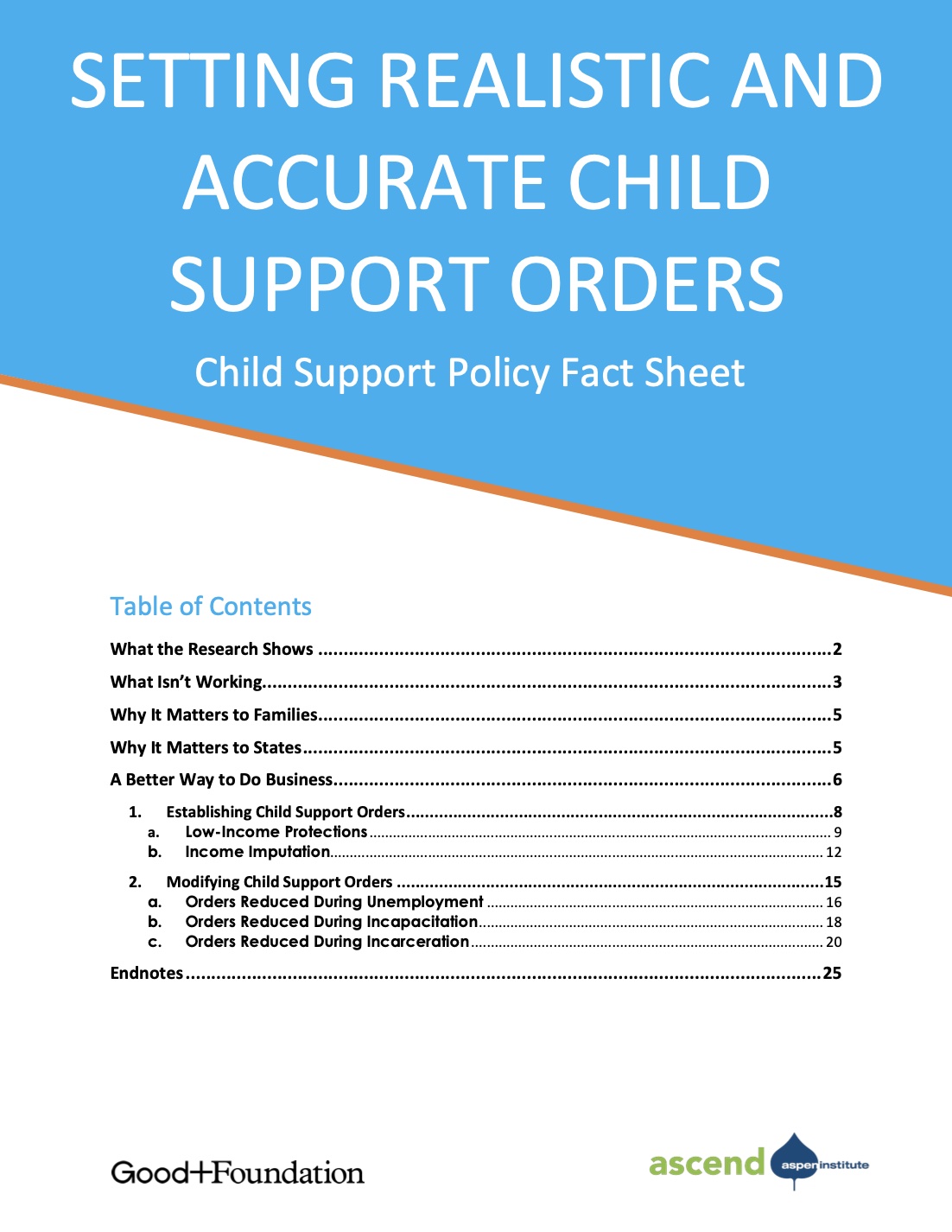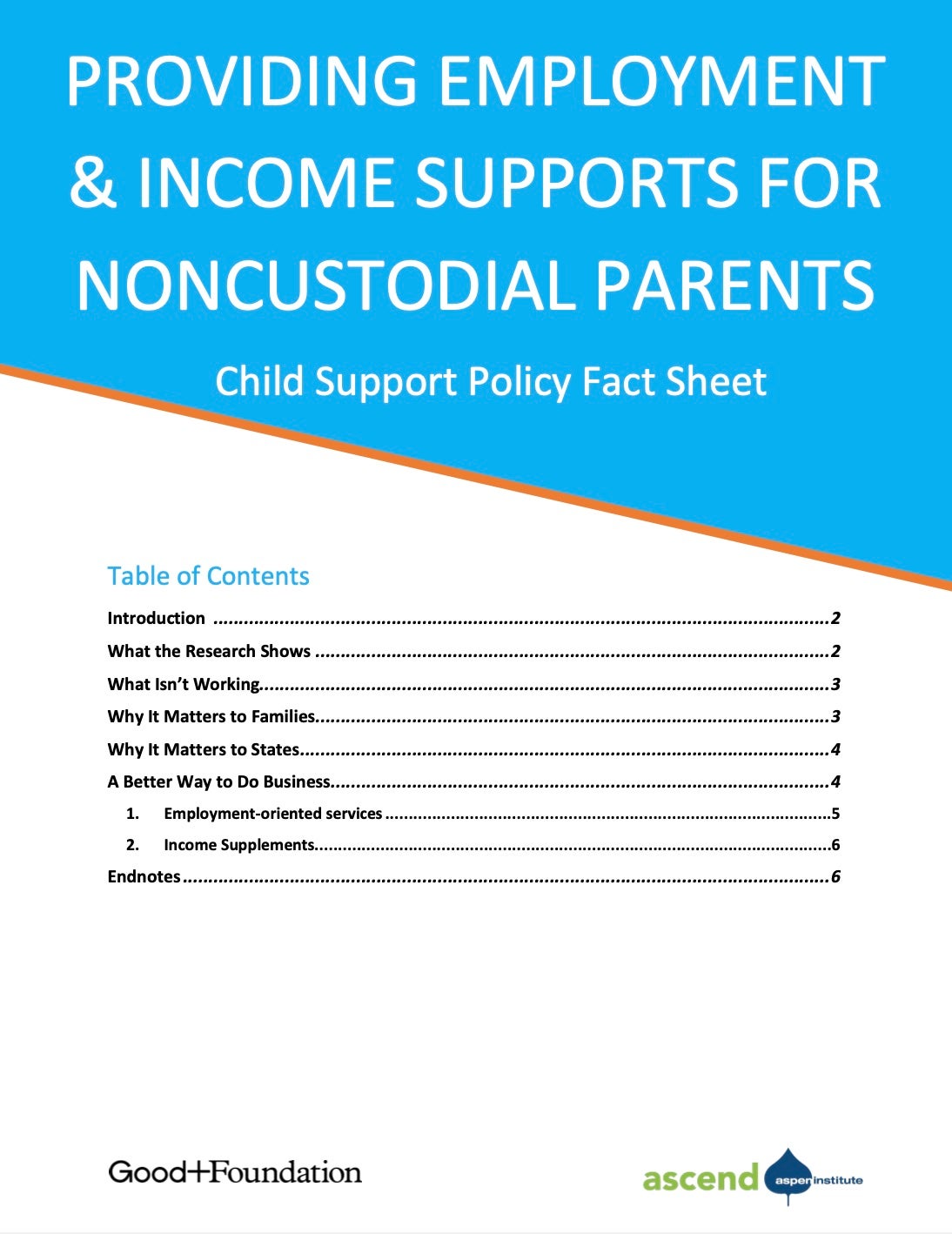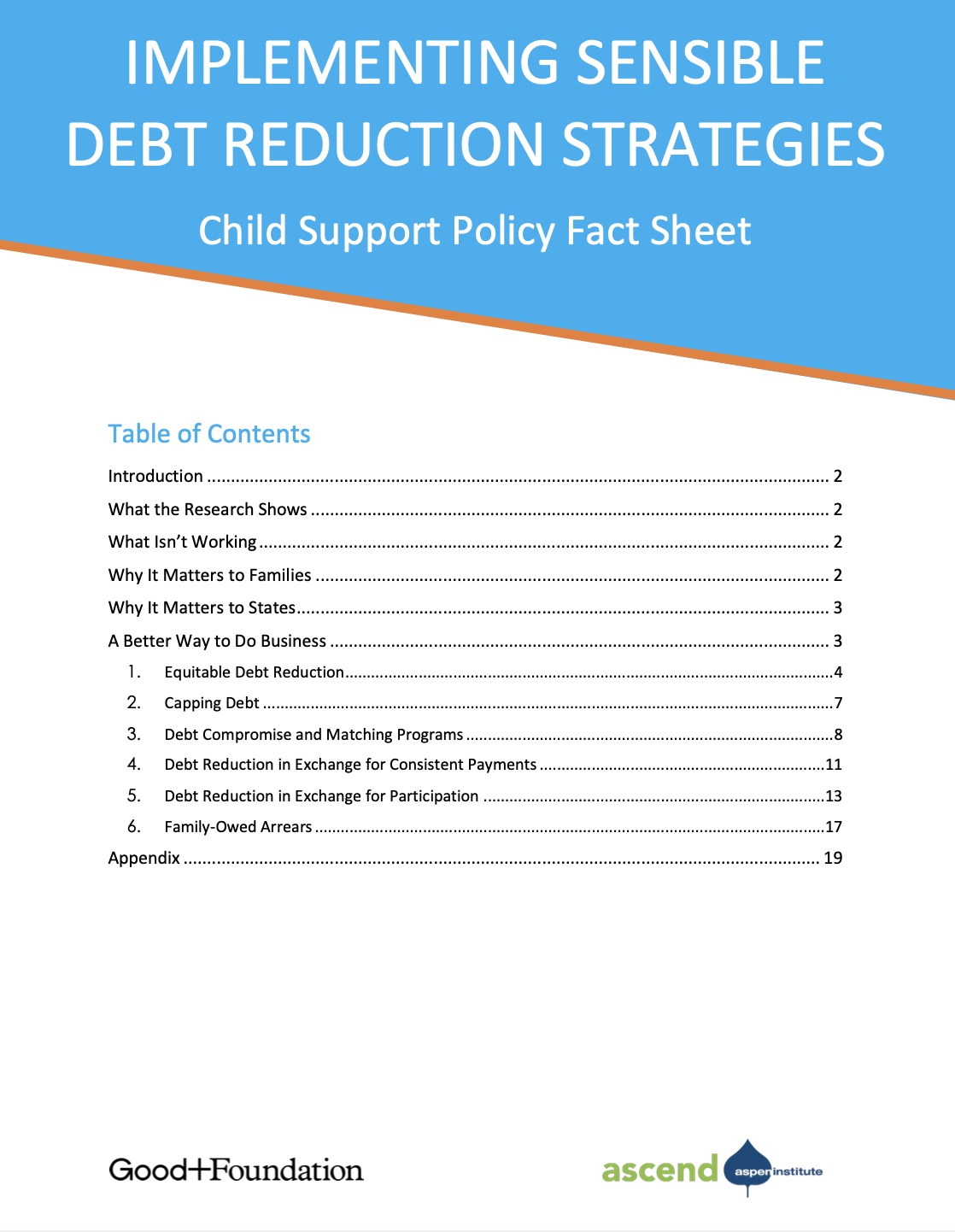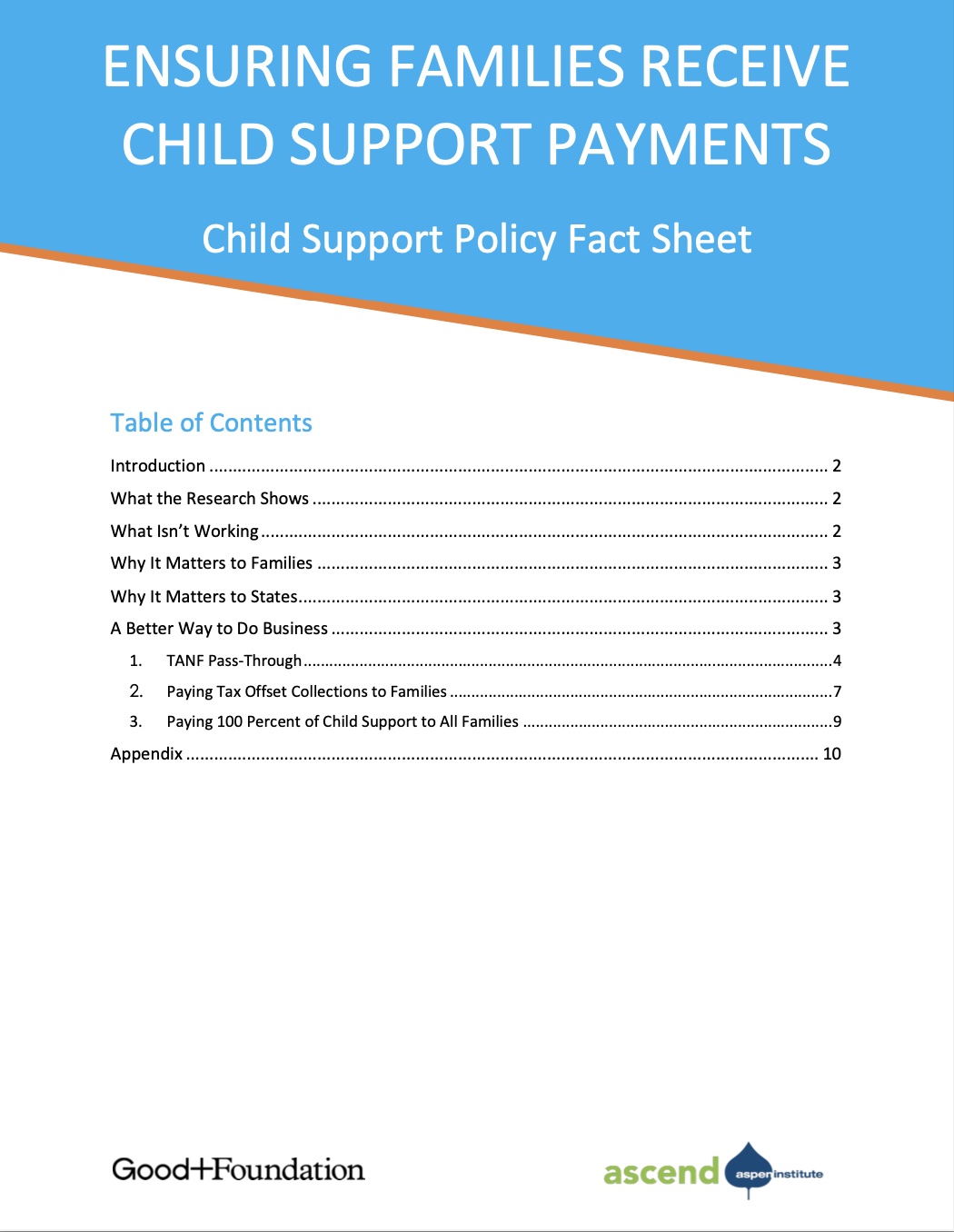
Setting Realistic and Accurate Child Support Orders
Child support is an important source of income for children, but many noncustodial fathers have a limited ability to pay. Unrealistically high child support orders based on faulty assumptions about earning capacity do not produce more income for children; they produce uncollectible debt. Orders set beyond the ability of noncustodial fathers to pay them are counterproductive, resulting in less consistent payments, decreased labor force participation, increased debt, and strained family relationships. Unrealistic orders increase the compliance gap in child support collection rates, potentially reducing performance incentive funds and reducing public confidence in the effectiveness of the program.
More in this Series







